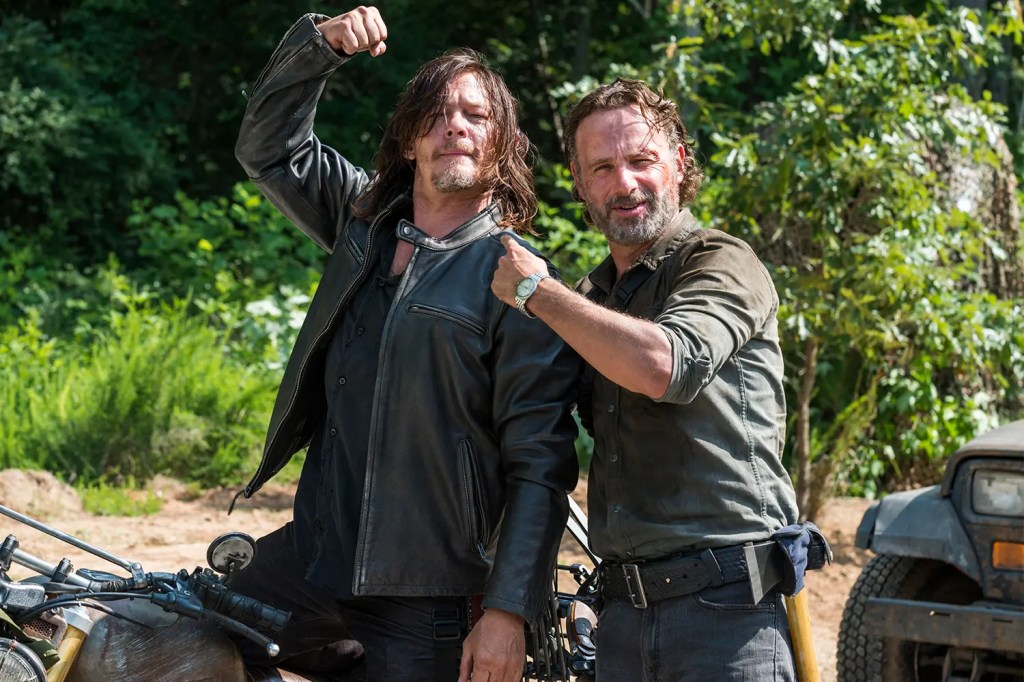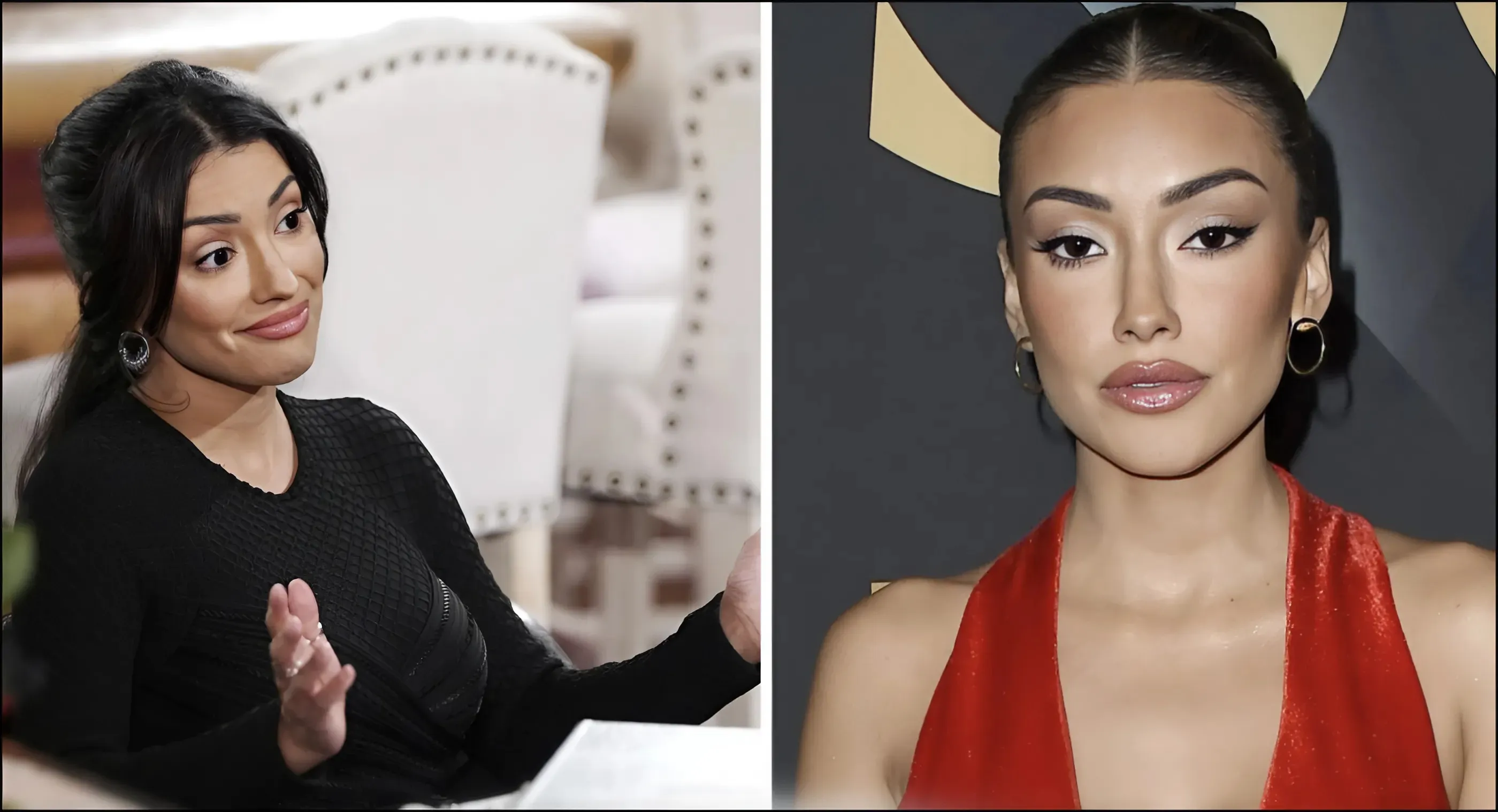Zombies may shamble slowly, but the questions they leave behind move at lightning speed. Despite wrapping up its main storyline after eleven blood-soaked seasons, The Walking Dead universe continues expanding through multiple spinoffs that follow beloved characters across different corners of the post-apocalyptic landscape. From Daryl’s adventures in France on The Walking Dead: Daryl Dixon to Rick and Michonne’s reunion in The Walking Dead: The Ones Who Live, these extensions of the franchise keep fans hooked while introducing fresh landscapes, characters, and threats. Yet, for all the new ground covered, numerous head-scratching mysteries from the original series remain buried deeper than a walker in quicksand.
The sprawling zombie saga has spawned countless theories among its dedicated fanbase, with viewers dissecting every episode for clues about the world’s most pressing questions. As the franchise balances nostalgia for long-standing characters with exciting new directions, certain fundamental puzzles stay frustratingly unsolved. Whether these mysteries will eventually find resolution in future spinoffs or remain permanently in the dark remains unknown, much like the fate of humanity itself in this walker-infested world. Here are the seven most significant Walking Dead mysteries that continue to lurk in the shadows, haunting fans long after the main series concluded.
What Happened to Other International Communities?
While most of The Walking Dead‘s action unfolds across America’s post-apocalyptic landscape, Daryl Dixon’s European adventures opened fans’ eyes to how differently other regions might experience the zombie outbreak. France’s walker variants exhibited disturbing new capabilities, suggesting the virus manifests uniquely worldwide.
This global perspective presents enticing storytelling possibilities that remain largely unexplored. Have certain nations fared better than others based on geography, population density, or cultural approaches to crisis? Could isolated communities on islands or in remote mountain regions have maintained functioning societies? The appearance of different walker types in France hints at potentially fascinating variations elsewhere—perhaps faster zombies in some regions, completely immobile ones in others, or even communities that found effective containment methods.
The international mystery grows more compelling when considering how pre-apocalypse relationships between countries might have evolved. Did any governments survive long enough to establish communication networks? Did military powers attempt coordinated responses? With the Commonwealth and Civic Republic Military demonstrating that large-scale organizations survived in America, fans wonder what equivalent powers might exist across oceans, waiting to be discovered.
Will Rick and Daryl Ever Reunite?

The brotherhood between Rick Grimes and Daryl Dixon formed the emotional foundation of The Walking Dead’s early seasons. Their separation following Rick’s helicopter departure in Season 9 created one of the franchise’s most anticipated potential reunions—a moment fans have waited years to witness.
While The Ones Who Live finally brought Rick back to the screen and reunited him with Michonne, his reunion with Daryl—his most trusted lieutenant—remains unfulfilled. Norman Reedus has publicly expressed interest in making this reunion happen, though coordinating between separate spinoffs presents logistical challenges. The emotional weight of such a meeting would be tremendous, especially considering Daryl never stopped searching for Rick and continues wearing his gun as a reminder of their bond.
With Daryl currently traversing France and England while Rick has returned to America, the geographic distance between them seems insurmountable. However, given the franchise’s love for dramatic reunions and the central importance of this relationship, many believe the showrunners must eventually bring these blood brothers back together, possibly in a future crossover event that could serve as a capstone for both characters’ journeys.
How Many Years Have Passed Since the Original Outbreak?
The timeline across The Walking Dead franchise has become increasingly muddled, especially with various spinoffs operating at different points in the apocalypse. While Fear The Walking Dead began showing the early outbreak days, spinoffs like The Walking Dead: Dead City and Daryl Dixon occur well after the main series’ conclusion.
This chronological confusion leaves viewers struggling to understand how much time has passed since the world fell. Has a decade gone by? Fifteen years? The answer affects our understanding of character development, environmental changes, and technological degradation. Without a clear timeline, it’s difficult to appreciate how communities have evolved or how nature has reclaimed urban areas.
The temporal question becomes particularly relevant when considering how children like Judith and Hershel Jr. have grown up knowing only this dangerous world. Their perspectives on society would differ dramatically depending on whether they’ve lived through five years of apocalypse versus fifteen. Similarly, the decay rate of infrastructure and supplies—from collapsing buildings to spoiled gasoline—should reflect an accurate passage of time to maintain the world’s internal logic.
Can The CRM Actually Be Defeated?
The Civic Republic Military emerged as the most formidable human antagonist in The Walking Dead universe, first introduced in the main series and further explored in World Beyond and The Ones Who Live. This militaristic organization possesses resources, technology, and manpower far exceeding any community previously seen.
The question of whether the CRM can be—or should be—defeated raises fascinating possibilities for future storytelling. While Rick and Michonne confronted aspects of the organization in The Ones Who Live, the CRM largely remains intact. As a potential overarching villain for the entire franchise, the CRM’s ultimate fate could become a unifying thread across multiple spinoffs.
What makes this mystery particularly compelling is the CRM’s moral ambiguity. Unlike purely malevolent antagonists like the Governor or Negan, the CRM genuinely believes its authoritarian methods are necessary for humanity’s survival. Their advanced resources might hold the keys to understanding or addressing the walker virus itself, making their complete destruction potentially catastrophic for humanity’s future. This ethical complexity elevates the CRM mystery beyond simple questions of victory or defeat.
What’s Laurent’s True Connection to Walkers?
Daryl Dixon introduced Laurent, a young boy with an apparent special connection to walkers that sometimes causes them to respond differently to him than to other humans. Throughout the first season, this mysterious bond raised significant questions about the nature of the walker virus and its evolution.
Is Laurent somehow immune? Does he represent a potential key to understanding or even curing the virus? As Daryl Dixon continues with its third season, exploring Laurent’s true nature could provide new insights into the fundamental mechanics of the franchise’s central threat. However, with Laurent now sent to America while Daryl and Carol venture through England, this storyline appears temporarily shelved.
Laurent’s connection to walkers represents one of the most intriguing additions to the franchise’s mythology in years. If he truly possesses unique biological characteristics, he could become central to the entire Walking Dead universe’s future. Yet with his story currently paused, fans must wait to discover whether his abilities represent a genuine evolutionary development or merely coincidental behavior from the undead.
Will There Ever Be a Cure for the Walker Virus?
The possibility of a cure has been raised throughout the franchise, from Eugene’s initial false claims to the scientific research conducted by the CRM and other groups. World Beyond reintroduced this concept through its focus on research facilities working on the virus, while more recent developments with Laurent suggest potential immunological breakthroughs.
A cure would fundamentally transform The Walking Dead’s world, potentially allowing for the restoration of society as it existed before the outbreak. This raises narrative questions about whether the franchise would embrace such a dramatic shift or continue focusing on survival in a world where the dead walk. The development of a cure would create new conflicts regarding who deserves access and how it would be distributed in a fractured world.
The cure question ultimately represents the most optimistic thread in an otherwise bleak universe. While early seasons focused purely on survival, later storylines increasingly suggest humanity might someday overcome the apocalypse rather than merely endure it. Whether this hope materializes or proves, another cruel disappointment remains one of the franchise’s most significant unresolved mysteries.
How Did the Virus Actually Begin?
The origin of the walker virus remains the biggest mystery in The Walking Dead universe. World Beyond provided some hints through its post-credits scene featuring a French research facility but stopped short of confirming the initial cause. This scene suggested French scientists may have been responsible for creating or accelerating variants of the walker virus.
Understanding how the apocalypse began would provide critical context for the entire franchise. Was it a natural mutation, a bioweapon, or something entirely different? The show has teased connections to research facilities and government organizations like the CRM but has yet to provide definitive answers. For a series that has explored nearly every aspect of post-apocalyptic survival, this foundational question remains surprisingly unresolved.
The origin mystery carries philosophical weight beyond mere curiosity. If the virus resulted from human experimentation, it frames the apocalypse as a cautionary tale about scientific overreach. If it emerged naturally, it suggests humanity’s inherent fragility against nature’s forces. The answer would fundamentally shape how viewers interpret the show’s themes about civilization, human nature, and our capacity for both destruction and resilience in the face of catastrophe—making it the Walking Dead’s most profound unanswered question.


-1747752100-q80.webp)
